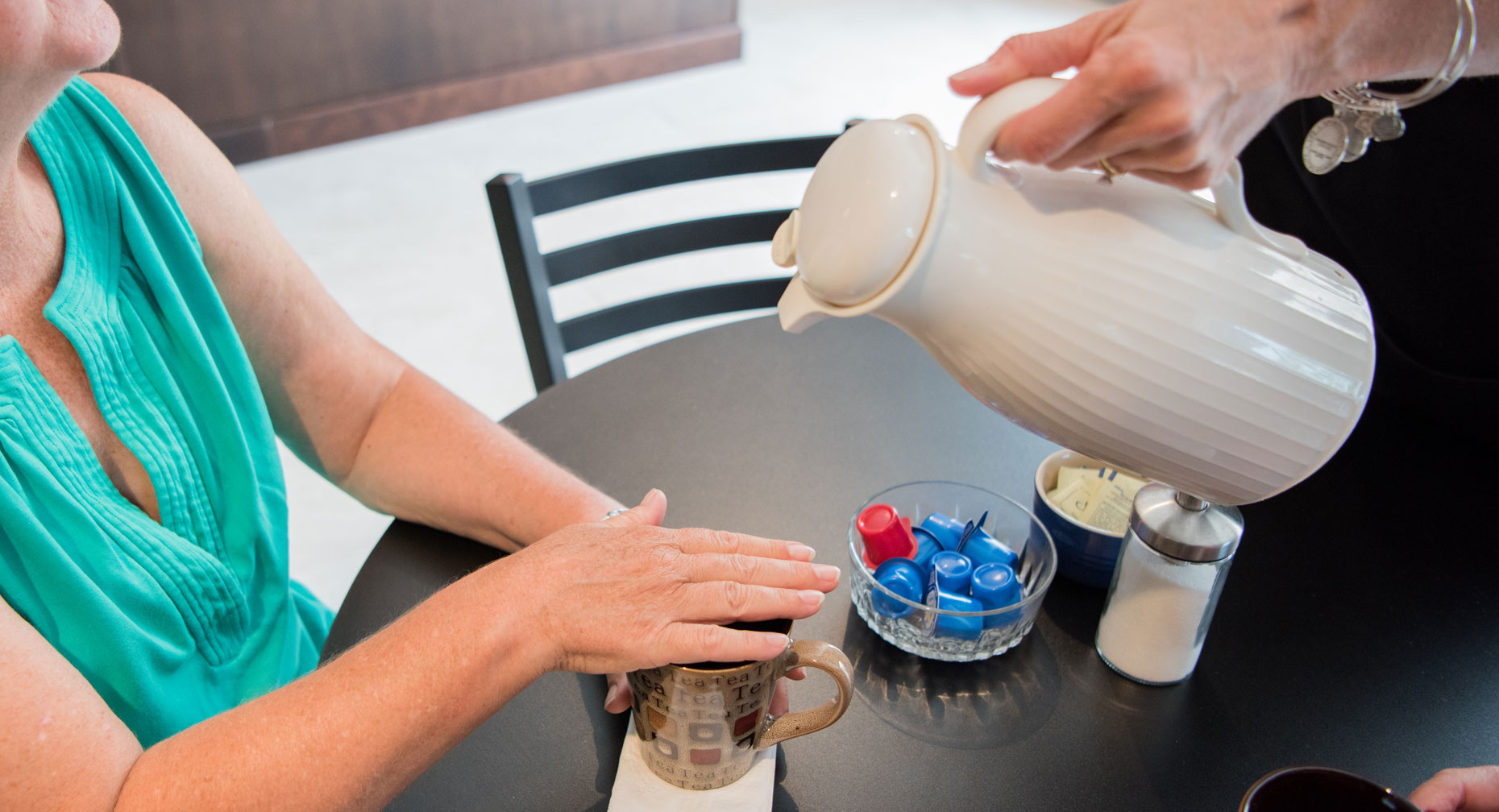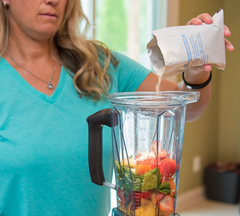- Bone and Joint Health
- Diet and Nutrition
- Health Topics
- Osteoporosis
- Osteoporosis/Fragility Fractures
Eat Your Way To Stronger Bones To Prevent Osteoporosis

Find Your Perfect Match
Answer a few questions and we'll provide you with a list of primary care providers that best fit your needs.
Every day, your body naturally loses calcium, a mineral essential to keeping your bones strong and healthy and protecting them from osteoporosis and fracture.
But don’t let this fact of life break you.
Even though your body can’t produce new calcium to replace what’s lost, you can help replenish calcium — and add other bone-strengthening nutrients to the mix — by eating the right foods. And you can limit consumption of others.
What’s more, when you don’t get enough calcium from your diet, calcium is drawn from your bones to meet your body’s other needs. Besides building strong bones and teeth, calcium helps your blood clot, your nerves send messages, and your muscles contract.
The Best Sources Of Dietary Calcium
- Dairy products. This includes low-fat and non-fat milk, yogurt, and cheese. For instance, milk has 300 milligrams (mg.) of calcium per eight ounces, and plain low-fat yogurt has 310 mg. per six ounces.
- Certain green vegetables. Frozen collard greens contain 360 mg. of calcium per eight ounces, and frozen kale has 180 mg. per eight ounces.
- Foods and beverages with added calcium. This includes some juices, soymilk, cereals, snacks, breads, and bottled water. Calcium-fortified cereals range from 100 to 1,000 mg. of calcium per cup.
Look to seafood as another calcium source. For instance, canned sardines with bones contain 325 mg. in three ounces, and canned salmon with bones has 180 mg. in three ounces.
And you can give your food a calcium boost by adding nonfat powdered milk. A tablespoon contains about 50 mg. of calcium.
Check out this listing of other calcium-rich foods provided by the National Osteoporosis Foundation.
Plan your menus with this in mind: For women age 50 and younger (and men age 70 and younger), the daily calcium requirement is 1,000 mg. Women age 51 and older (and men age 71 and older) need 1,200 mg. of calcium daily.
Vitamin D
Vitamin D also plays an important role in maintaining strong, healthy bones. And vitamin D helps your body absorb calcium for added bone-strengthening benefit.
Only a few foods naturally contain vitamin D. For instance, fatty fish such as wild-caught mackerel, salmon, and tuna. And vitamin D is added to milk and other dairy products, as well as orange juice, soymilk, and cereals.
An eight-ounce serving of milk usually contains 100 international units (IU) of vitamin D. The recommended daily intake is 400 to 800 IU for women and men under age 50 and 800 to 1,000 for age 50 and over.
The ultra-violet (UV) rays of sunlight also are a key source of vitamin D – and a cause of skin cancer. When you apply sunscreen to reduce your skin cancer risk, you’re also blocking UV rays from producing vitamin D in your skin.
For this reason, you may need a vitamin D supplement to get enough of the nutrient to maintain bone health. Ask your doctor if you could benefit from a supplement.
Other nutrients also contribute to bone health. These include vitamin K, vitamin C, magnesium, zinc, and protein. Milk provides many of these nutrients as do lean meat, fish, green leafy vegetables, and oranges.
Besides building strong bones and teeth, calcium helps your blood clot, your nerves send messages and your muscles contract.
Cautions For Some Foods And Beverages

Be aware that some foods and beverages can interfere with bone-strengthening nutrients. These include:
- Beans. Though they contain calcium and other essential nutrients, they also contain substances called phytates. Phytates interfere with absorption of the calcium in the beans. You can lower the phytate level by soaking beans in water for several hours before cooking them in fresh water.
- 100% wheat bran. Phytates in beans interfere only with calcium in the beans. But phytates in wheat bran interfere with absorption of calcium from other foods and supplements consumed at the same time. For instance, wheat bran cereal can reduce the bone-strengthening benefits of calcium in the milk you pour on the cereal. Wheat bran in other foods, such as bread, is less concentrated and has less effect on calcium absorption.
- High-protein foods. Meat and other protein sources benefit bone health. But special high-protein diets can cause calcium loss.
- Salty foods. Excess salt, or sodium, can cause calcium and bone loss. Limit the amount of processed foods you eat and salt you add to food. Read food labels: If sodium is listed at 20 percent or more of the Daily Value, the product is high in sodium. Limit sodium to 2,300 mg. a day.
- Spinach. Foods high in oxalates (oxalic acid) such as spinach, rhubarb, beet greens, and certain beans reduce calcium absorption. They contain other beneficial nutrients, but don’t count them toward your calcium allowance.
- Alcohol. Drink alcohol in moderation — no more than two or three drinks a day. Heavy drinking can cause bone loss.
- Caffeinated beverages. Drink coffee, tea, and soft drinks in moderation, as caffeine may decrease calcium absorption. Soft drinks also contain phosphorous, which may also contribute to bone loss. And if you choose soft drinks over milk, you’re depriving yourself of calcium.
Find Your Perfect Match
Answer a few questions and we'll provide you with a list of primary care providers that best fit your needs.
Source: Womenshealth.gov; National Osteoporosis Foundation




